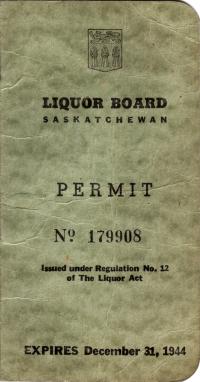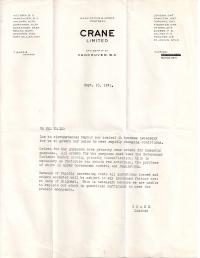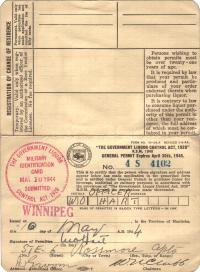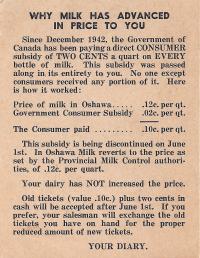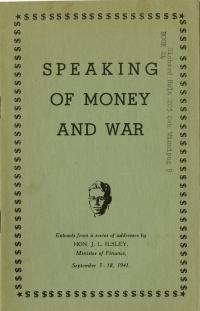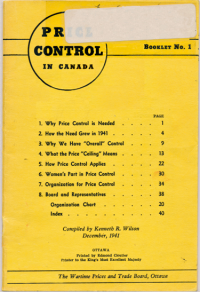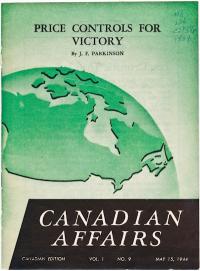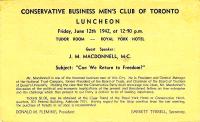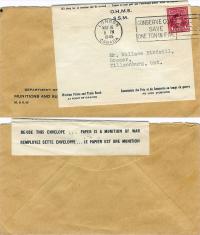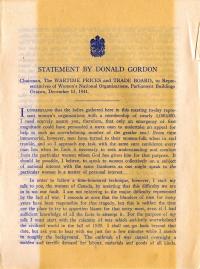Wage and Price Controls
Buying alcohol in Saskatchewan
William Hart was stationed in Winnipeg with the Royal Canadian Air Force in 1944; when one flight took him to Saskatchewan, he was required to secure a provincial permit book for a single purchase of alcohol.
The supply of toilets in wartime
Military needs took precedence during the Second World War, and this manufacturer of sinks, toilets, and bathroom fittings informed customers that they might not have their orders filled because of wartime demands.
Permit for purchasing alcohol
The sale of liquor had been subject to controls long before the Second World War - the need for servicemen and women to carry a purchase permit merely added another layer of complexity.
The cost of milk
Like every other commodity, milk was sold at prices that were carefully controlled by federal and provincial authorities.
Speaking of Money and the War
J.L. Ilsley, Minister of Finance for Canada, was responsible for the nation's economic budget for the duration of the Second World War. These speech extracts outline Canada's pay-as-you-go policy to finance the war and its impact on wartime debts, taxes, and business.
Price Control in Canada
This pamphlet emphasises price-consciousness through an overview of Canada's price control policy and its effectiveness on combating inflation.
Post-war price controls
This pamphlet, written by the Economic Adviser to the Wartime Prices and Trade Board, offers thoughts on Canada's post-war price stabilization program in terms of inflation, wage control, supply of essentials, and cost of living.
Can We Return to Freedom?
In June 1942 J.M. MacDonnell, a decorated veteran of the First World War, addressed a business group on the implications of wartime economic controls.
"Paper is a Munition of War"
During the Second World War, the Wartime Prices and Trade Board printed and distributed labels that allowed envelopes to be reused, as a way to save paper.
To the women of Canada
Price controls constituted a major step for Canada's government of the Second World War, so Donald Gordon, the man in charge of implementing them, took every opportunity to explain the process to community groups.

